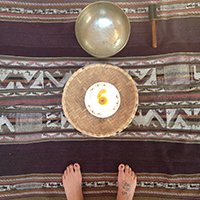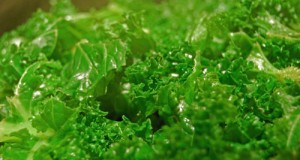Stop Stress Before it Starts
Accessing your innate healing capacity, and what ‘lifestyle’ changes really entail
Guest blog post from Adena Rose Ayurveda
We all know that stress is the silent killer. But sometimes we might forget that the definition of insanity is doing the same things over and over again, expecting to get different results.
As an Ayurvedic Practitioner, I teach my clients how to discover their personal elemental makeup and create a meal plan based on their current state of balance or imbalance. I call this ten-week program The Healing Diet, but there’s an agenda hidden behind that title – that we’ve got to learn that it’s really not all about food.
We all have the ability to heal ourselves, it’s something our body does well, when we give it the chance. Each of us  may have different weak spots, or triggers, and it pays to understand them. According to Ayurveda, the crux of any sort of healing, or preventative medicine, is balanced digestion. And luckily, that is usually the place where we noticed symptoms pop up first – if we’re paying attention.
may have different weak spots, or triggers, and it pays to understand them. According to Ayurveda, the crux of any sort of healing, or preventative medicine, is balanced digestion. And luckily, that is usually the place where we noticed symptoms pop up first – if we’re paying attention.
We’re just used to stress, for better or worse. For a lot of us, it’s a daily experience, in one way or another. So common we might seem numb to it, or our body and mind accept it as a necessary evil. When we’re stressed, it’s just the natural function of our physiology to reprioritize our resources. We don’t prioritize our digestive system, so we don’t prioritize optimal digestion and assimilation of the nutrients we take in. And this is just physiologically – if we also feel that we don’t have time to sit don’t and eat, or chew our food well, we’re even further comprised.
Are you healing or just dealing?
My reiki teacher introduced me to this idea of healing versus coping. To be in a healing state physiologically, our parasympathetic nervous system (PNS) is stimulated, while coping, the sympathetic nervous system (SNS) is turned on. We can not be operating in both states at the same time. The parasympathetic nervous system is often called the ‘rest and digest’ system, this is how it was even taught in my anatomy and physiology classes.
The PNS is anabolic, which means it is concerned with rebuilding and replenishing. These nerves stimulate digestion, and the immune system and organs of elimination – the liver, pancreas, stomach and intestines.
The SNS is the so called the ‘fight or flight’ response. It redirects more blood (full of adrenalin) to the muscles, heart and the brain, so you can move faster and fight harder. This system is catabolic – meaning it strips the body of energy reserves needed in the situation to keep you alive.
In reality, though, our ‘fight or flight’ or stress response is turned on more often than we really are presented with real danger. What we call samskaras in yoga and ayurveda, meaning tendency or impression, one might call a habit of the nervous system to respond in a certain way. Humans are creatures of habit, right down to the cells. The more you have felt stress in your life, the more often your body will start to react in that way to any perceived danger. Your SNS is just trying to keep you alive – not realizing it’s actually continually depleting your reserves of nutrition, or an ayurvedic terminology, ojas. Our ojas is our natural immunity, our aura, and our energy reserves.
Creating new patterns
The only way to make change, is to little by little, to created new grooves, new habits – those samskaras. This is done through lifestyle changes, which might be recommended to you by a practitioner. Lifestyle changes are little self-care practices and shifts in routine that are based on the rhythms found in nature, called dinacharya, in Ayurveda.
“Being able to affect the macrocosm of a lifetime via the microcosm of a 24-hour cycle, offers tremendous healing potential…Each new day ushers in a cascade of new possibilities and a shower of second chances.” – Dr. Claudia Welch, Dinacharya: Changing Lives through Daily Living
Three lifestyle changes you can make to lower the impact of stress on your digestion:
– Start your day off on the right foot: before you allow yourself to check your phone or emails, set a timer for a 5 minute meditation. Just close your eyes, and focus on your breath. No other agenda for 5 minutes.
– Make mindfulness a priority at mealtimes. Take 3 deep breaths, and give gratitude for your meal before you eat. This can stimulate the PNS.
– Along those same lines, sit down while you eat, and allow yourself the time to get away from your computer.
So many of us do yoga, feel like we’re eating healthy, yet still live lives we’re not proud of. What I see is that what most people need is a plan, some structure, and a good community to keep them moving forward. To keep them aware of the bigger perspective.
If you subscribe to the holistic perspective on health and wellbeing, I’ll invite you to join a supportive and evolving community. I am taking only 15 people for my pilot program of The Healing Diet, where we’ll learn and experience moving from coping to healing through diet and lifestyle changes.
If you want to be one of the 15, apply today.
Love, Adena
PS: Learn more ways to start your day in a healing way, get recipes, and a 1 day cleanse guide to reset your body and mind, here
 Adena is a well-trained Ayurvedic Practitioner and Panchakarma therapist, and professionally trained in The Arvigo Techniques of Maya Abdominal Therapy. She helps women heal from painful menstrual cycles and stubborn digestive complaints.
Adena is a well-trained Ayurvedic Practitioner and Panchakarma therapist, and professionally trained in The Arvigo Techniques of Maya Abdominal Therapy. She helps women heal from painful menstrual cycles and stubborn digestive complaints.
Adena is the founder of AdenaRoseAyurveda.com and the online program The Healing Diet.











